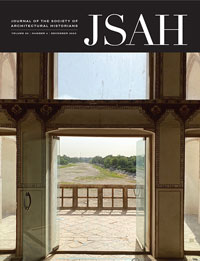Originally published on the MLA website:
In March 2020, the [MLA] Executive Council approved the following statement. It was endorsed by twenty-two other organizations or their executive committees.
The 2020 COVID-19 pandemic has created extraordinary challenges for faculty members, students, and staff members at colleges and universities around the world. The mandate for social distancing for the purpose of safeguarding public health has sent students home (or to temporary quarters) and instructors online, as courses have made an unprecedented shift to "remote" or "distance learning" platforms.
This abrupt move to distance learning, in many cases for the remainder of the academic year, has upended the traditional face-to-face model of pedagogy and student development in higher education and challenged faculty members to redesign course work and content delivery, while also prohibiting or limiting access to offices, libraries, and research facilities for students as well as for faculty members.
While the full impact of this crisis and the demands that it now makes on faculties, students, and scholars will not be fully known for some time, the MLA calls on colleges and universities to implement practices that will ward off disastrous consequences for graduate students; contingent faculty members, including adjunct, postdoctoral, non-tenure-track, and graduate instructors; untenured faculty members; and international scholars and students.
There is no one model of best practices in place to guide teachers under these circumstances, and we call on institutions to exhibit the very flexibility and compassion that they are asking their faculty members to demonstrate in the midst of this transition.
Specifically, we join with other professional organizations in requesting that institutions pause the tenure clocks of junior faculty members and time-to-completion measures for graduate students; extend existing coverage of health insurance, housing, and other benefits and provide health insurance or subsidies for those who are currently not covered by existing policies; extend graduate student funding or term-limited contracts for those whose employment prospects have been further dimmed by the crisis; and reimburse faculty members who are paid by the course for the time required of them to adapt those courses, including any connectivity and equipment costs incurred in the shift to distance learning platforms now and henceforth, should the pandemic continue.
In addition to these material supports, we call on institutions to eliminate student and peer evaluations from considerations of contract renewal, tenure, and promotion for the current term and for any future terms where remote instruction and related conditions continue.
Finally, we ask that institutions provide legal and other material support to international students and scholars in the United States and Canada, in their countries of origin, or in any other international location.
In sum, we call on institutions to act with ethical imagination and commitment in response to both the individual and shared challenges facing our communities during this unprecedented pandemic.
Endorsements:
African Studies Association
American Academy of Religion
American Anthropological Association
American Folklore Society
American Philosophical Association
American Society for Eighteenth-Century Studies
American Society for Theatre Research
American Studies Association
Association for Asian Studies
Executive Committee of the Association for Jewish Studies
Association for Slavic, East European, and Eurasian Studies
Association for Theatre in Higher Education
CAA
International Center of Medieval Art
Latin American Studies Association
Medieval Academy of America
Middle East Studies Association
Modern Language Association
National Council of Teachers of English
Organization of American Historians
Society of Architectural Historians
Society of Biblical Literature
World History Association


